Life
Sign up for our newsletter
We summarize the week's scientific breakthroughs every Thursday.
-
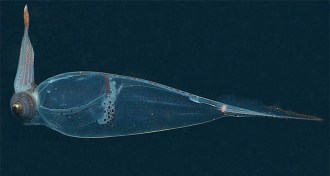 Life
LifeBy leaking light, squid hides in plain sight
Glass squid camouflage their eyes with wonderfully inefficient bioluminescence.
By Susan Milius -
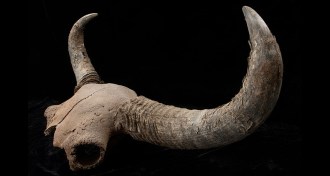 Paleontology
PaleontologyHuman route into Americas traced via trail of bison fossils
Bread crumbs in the form of ancient bison may mark one potential path that humans took to colonize the Americas.
-
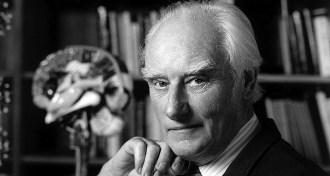 Science & Society
Science & SocietyFrancis Crick’s good luck revolutionized biology
Francis Crick, born 100 years ago, chose to study molecular biology first and then later tackled consciousness.
-
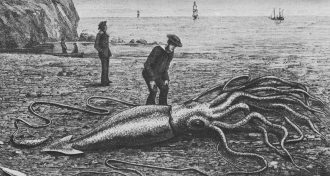 Animals
AnimalsMaximum size of giant squid remains a mystery
A scientist has come up with a new estimate of the maximum size of giant squid. He says the animals could be as long as two public buses.
-
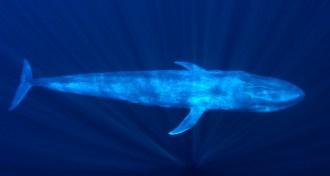 Animals
AnimalsPygmy blue whales deepen their moans
Sri Lankan pygmy blue whales are tweaking their calls — making one part deeper and keeping another part the same — but scientists can’t say why. The finding injects a new wrinkle in theories about blue whale calls.
By Meghan Rosen -
 Genetics
GeneticsAncient DNA tells of two origins for dogs
Genetic analysis of an ancient Irish mutt reveals complicated history of dog domestication.
-
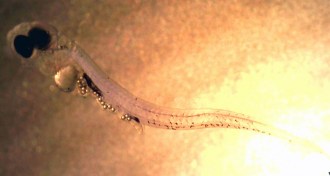 Animals
AnimalsTiny plastics cause big problems for perch, lab study finds
Researchers have linked microplastics to feeding behavior changes and development issues in Baltic Sea perch.
-
 Environment
EnvironmentTiny plastics cause big problems for perch
Researchers have linked microplastics to feeding behavior changes and development issues in Baltic Sea perch.
-
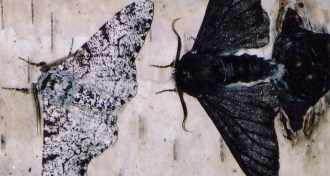 Life
LifeJumping gene turned peppered moths the color of soot
A single gene is behind some of the most famous examples of natural selection.
-
 Climate
ClimateReaders share climate change concerns
Readers respond to the April 16, 2016, issue of Science News with thoughts on climate change, prairie dogs and more.
-
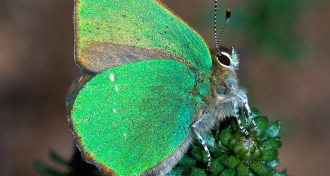 Materials Science
Materials ScienceButterfly-inspired nanostructures can sort light
Scientists re-created a nanostructure found on butterflies that can separate out circularly polarized light, a characteristic that may be useful for telecommunications.
-
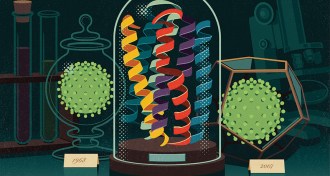 Life
LifeScientists dig up proteins from the past
To learn how today’s proteins evolved, scientists are reconstructing ancient molecules.